Gatekeeping Sustainability: Why You and the Planet Suffer
Emily Brealey writes of the pitfalls of perfectionism and gatekeeping when it comes to slow fashion.
It’s pretty well-known in the dieting world that 95% of new diets fail, and it doesn’t take a dietician to work out why. Most of the time dieters go all-in straight away, setting unrealistic goals that cause disappointment when they aren’t achieved, and adding so many changes to their daily routines that they just can’t keep up. When the diet isn’t sustainable and doesn’t work long-term for that individual, it is swiftly dropped. So why, then, when we try to undergo an entire lifestyle overhaul on our path to sustainability do we expect the result to be any different?
However your moment of realisation came about, whenever you realised the full extent of damage we’re doing to the planet and decided to make changes, you probably settled on a number of swaps to make straight away: from meat-eater to veggie, from make-up junkie to minimalist, from fast-fashion shopaholic to a clothing no-buy.
While those good intentions might work out perfectly for some, for many it is just too difficult to implement all of these changes at the same time. Once you’ve learnt about the climate crisis and understand the individual impact we have on the environment, it can be hard not to criticise yourself when you make a sustainability slip up. So here are some figures that might help to put things into perspective:
According to the 2017 Carbon Majors report, 70% of the world’s greenhouse gas in the last 32 years has been emitted by just 100 companies. Just 100!
Oxfam’s 2015 report on carbon inequality found that the poorest 50% of the world’s population is responsible for around 10% of total individual consumption emissions.
Oxfam also found that the richest 10% of people worldwide are the source of 50% of global emissions from individual consumption. Their carbon footprints are 11 times that of the poorest half of the world’s population, and 60 times that of the poorest 10%!
As everyday citizens, we contribute very little to climate change alone when compared to big corporations and the richest 50%. So does that mean that we should ditch any sense of individual responsibility? Should we throw out our reusable cotton pads and leave second-hand clothes shops to gather dust while we spring back onto fast fashion sites? Of course not; as consumers, we can and will drive change in business by campaigning for tighter environmental regulations for corporations and choosing to buy from brands that match up with our ethics.
What these figures do show is that a little leniency with yourself is nothing to be afraid of, especially if you’re just starting out on your sustainable journey. We’re all human and we’re all trying to navigate this crazy, contradicting world, striving to make the best decisions we can. A little slip up now and again is not something to beat yourself up about, but that becomes even more difficult when you factor in social media and the gatekeeping of sustainability.
Never before have other people been able to keep friends (and strangers) so accountable. Social media allows us to see into so many more hours of people’s days than ever before, and this can be a GREAT thing; it is truly a blessing to celebrate others’ achievements in sustainability and to feel that we have a moral responsibility to uphold online. But, equally, social media makes it really easy for people to gatekeep sustainability, promoting perfection rather than progress, and shaming those who slip up on their path to a more ethical lifestyle. This only serves to validate that inner voice that says you’re not doing enough, or that you should just stop bothering.
If somebody is vocal about climate change on their social media, but posts a photo in a fast fashion outfit, does it automatically make them a hypocrite? Are they using sustainability simply as a virtue signaller, pretending they care about issues without really looking into them? Even if they are, they shouldn’t be dismissed as phony, excluded from a movement that could really help them to reduce their waste and carbon consumption. I can’t help thinking that if there wasn’t such pressure and judgement enforced on us to get it right straight away, all the time, more people would give sustainable living a go. If there wasn’t the fear of feeling like a contradiction, eating less meat while still eating fish, or using a bamboo toothbrush while buying plastic-packaged toothpaste, wouldn’t we all be more inclined to introduce sustainable steps into our lives and daily routines? And less likely to feel that it’s just too hard to be sustainable, and not worth trying at all?
Gatekeeping is harmful, not helpful. Gradual, small changes are still changes, and you should feel really proud of yourself for making them. Slipping up once when you see an item on ASOS that you absolutely adore does NOT make you a failure or a hypocrite. So let’s all remember to be kind to one another and support each other’s journeys, no matter what stage we’re at. Even the tiniest of steps towards sustainable living benefit our planet.

